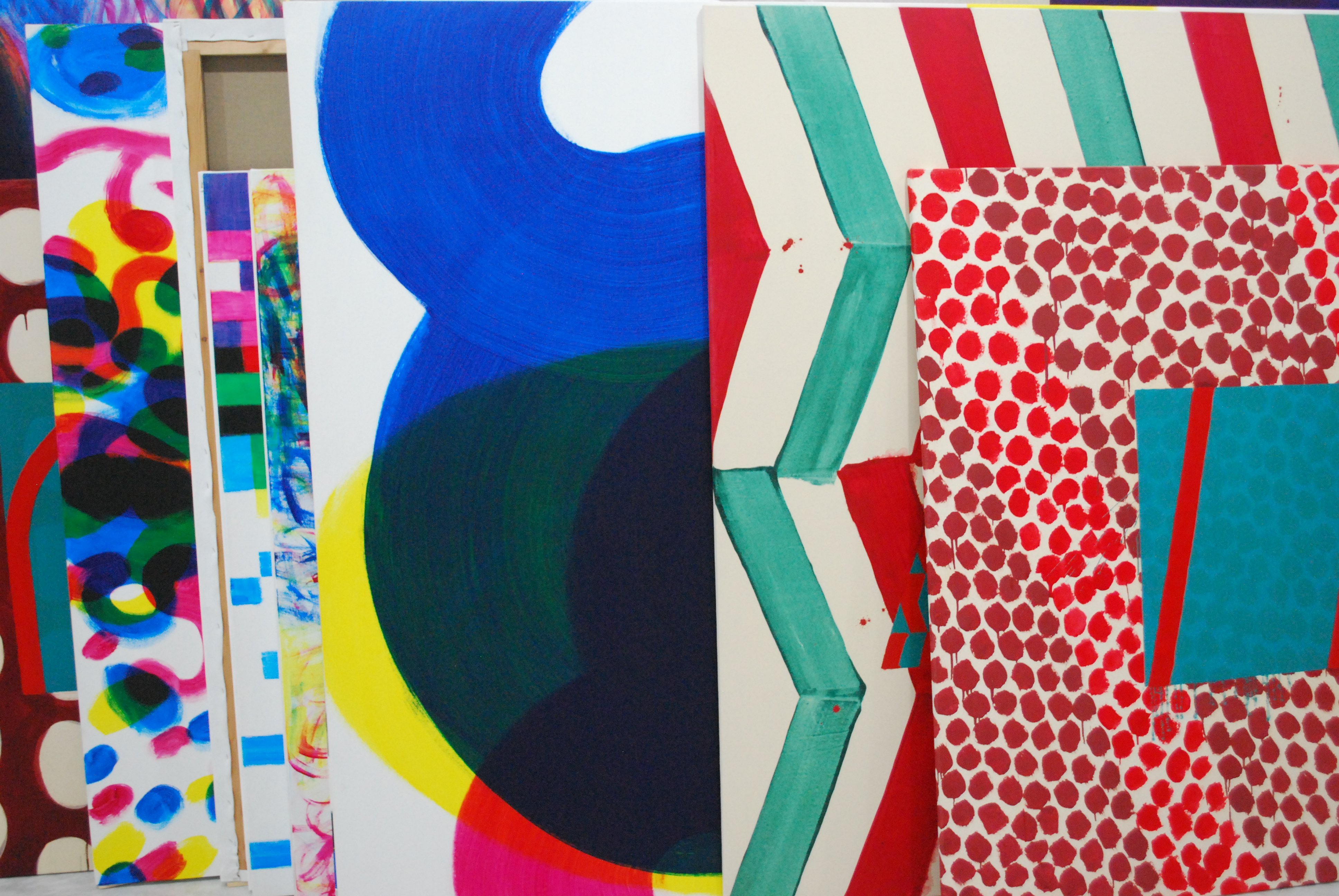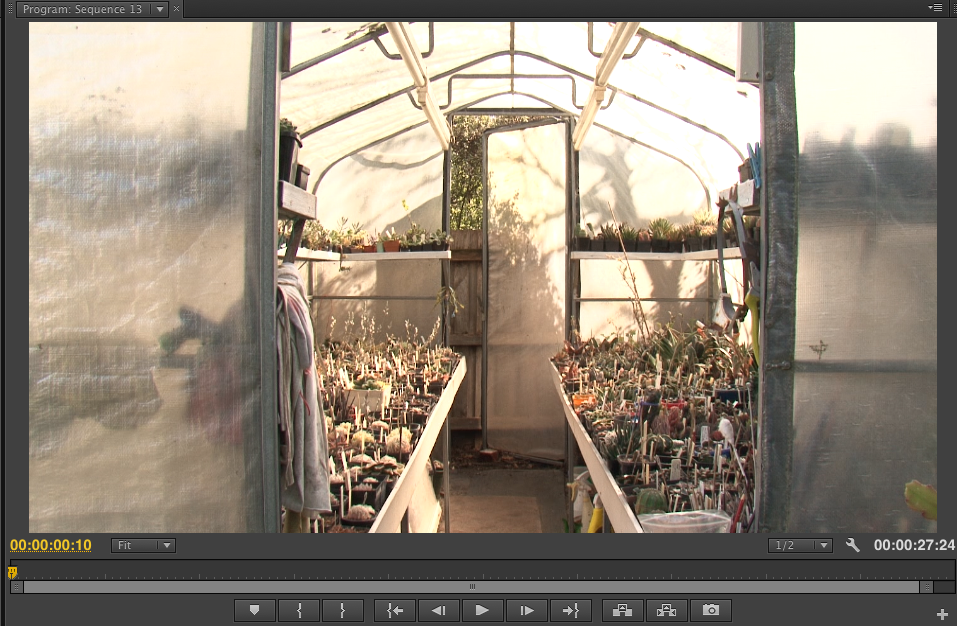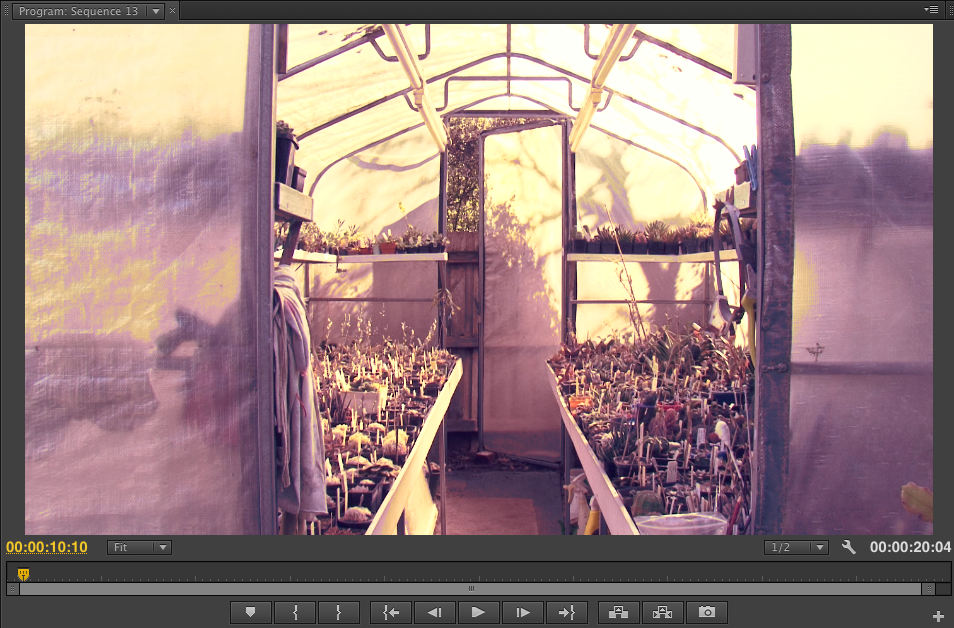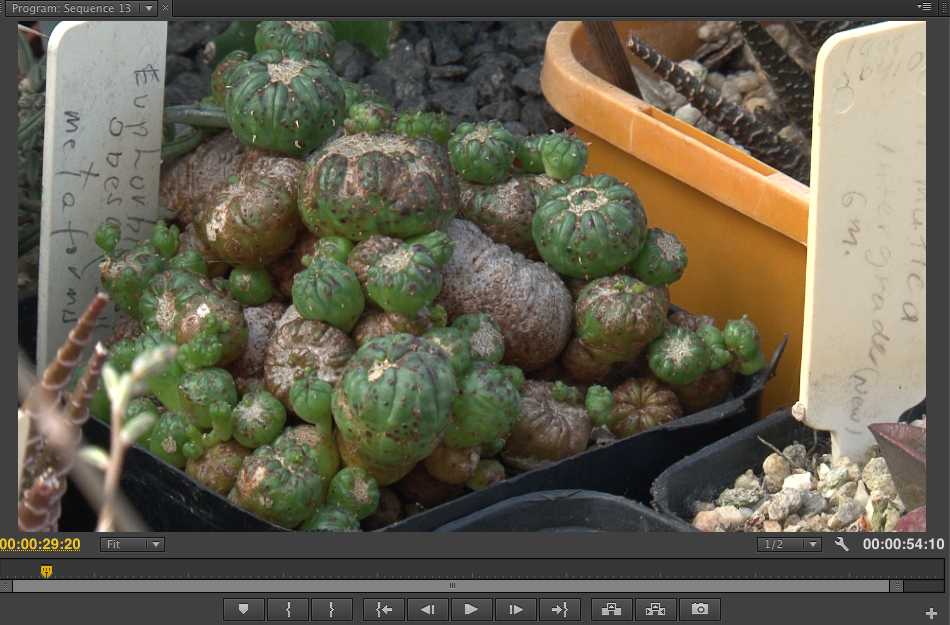FINAL ANALYSIS REFLECTION EVAAA!
Yay! Holiday are near and I am therefore in a good celebratory mood for a wonderful and FINAL analysis reflection.
Question 1
My first reflection is that myself and my group member did this together. I think this is indicative of the working practises of this subject and how well my group did together.
Colour grading was quite simple really – I don’t know why I was so frightened by the prospect of it.
Original
Colour graded – Blue tones
It was interesting how slight adjustments in colour could totally change the mood. Gabby and I noticed particularly in the shots of the greenhouse. The one with blue highlights looked especially cold and unwelcoming and we decided the one with pink highlights looked like a meth lab (not that I would know).
Lowered birghtness, increased contrast Lowered contrast, increased brightness
Lowered contrast, increased brightness
With these we adjusted brightness and contrast. When we increased the brightness and lowered the contrast we got really ugly results so added some yellow tones to add substance to it so it look less washed out.
Question 2
I am far more excited for this semester of work. I feel like there are less constraints, conventions and there is more opportunity to be creative. There is also opportunity to explore subject matter I really care about.
Last semester I took on a producer role because I knew I was capable of fulfilling it however this semester I would really like to become more technically capable with a camera and be able to explore the potential styles and aesthetic effects of the work my group creates.
I am so happy with this semester of work. I have enjoyed the semester a lot more and felt like my practical knowledge has increased.
Although I feel that I did take on another producer type role (because of my relationship with the subject) I feel like I was more involved in the production process and have involvement with constructing the narrative in our work.
In terms of timing, after having done Film/TV 2, I was able to scope the workload better. A timeline was really key to our success and the idea of looking forward meant we didn’t get complacent, there were always follow up actions. Having time on our side meant there were opportunities to work and rework the material in our film. Opportunities for feedback were vital to our work and I think we made the best use of them, listened carefully and changed accordingly.
Really what our film was about didn’t come into fruition until perhaps the 2nd rough cut of editing.
My main goal was to get a better technically, however with this came the construction of narrative. I definitely got better with the camera and certainly better with editing in Premier however as a result of this I was physically controlling the constructive of the narrative. Getting better at the basic technically elements actually complimented the creative side too.
ALthough it may not be the most efficient use of time, we all took on multiple roles. I think this suited our group dynamic. None of us were experts but it allowed us to share our learnings and each grow broadly rather then.
Working in a group of three, for me, worked amazingly. The initial complication in finding a group and idea reduced the group to three key people and forced us to really look at ideas rather than rely on somebody else’s. Production-wise there were less people to organise and it meant everyone really had to put in effort to produce the work.
The risk with this approach is accountability. There was more flexibility in our roles so there was responsibility to really nail one section of the process however I don’t feel like there was a lowering in quality because of it.
Editing happened in small sessions. Aside from one 6 hour day to get a rough cut together, we found the best working practise for editing happened with fresh eyes. By limiting the sessions to a few hours we were improving our work slightly each time.
They are just some of my reflections from the semester. Overall I’m so happy with what we have produced particularly as it wasn’t a reassuring beginning to the project. I definitely preferred making
I said in my original hopes for the semester that I could “explore subject matter I really care about” and I did. I feel very privileged that I was able to share my grandpa’s story with a wider audience and it allowed me to learn things about him that I perhaps would never have known.





